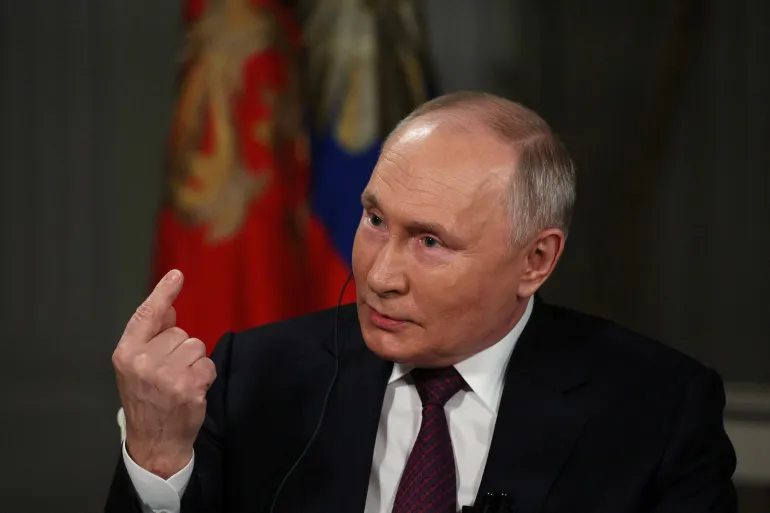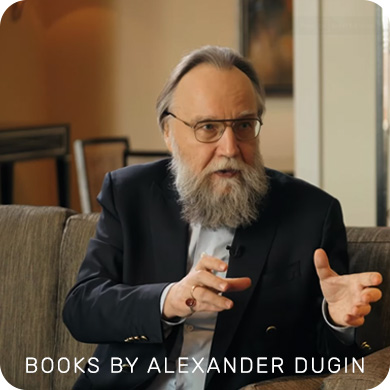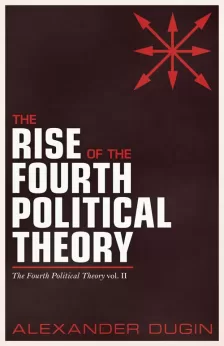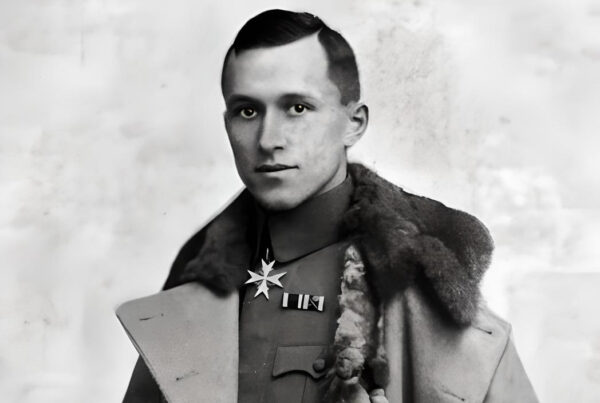Unless you reside under a rock, you’ve watched or at least heard about the Tucker Carlson interview conducted with Vladimir Putin. There has been much commentary around it; some inane, some excellent.
The American Establishment is in a panic. Tucker resembles an asset who has gone rogue over the last few years and is now too big to stop, chatting amiably with a global supervillain. “You have a great name. He must kill your name before he kills you,” said Juba the gladiator to Maximus in the film of that name. It is similar with Carlson. He is resilient to the usual strategies employed to burn assets. In part this is because he is independently wealthy; in part because half of America listens to him; in part it’s because he seems a good man. One can never really know these things, but he didn’t get on Epstein’s plane. There doesn’t seem to be any leverage.
Carlson seemed a little out of his depth interviewing Putin. He was not prepared for a winding lecture on the history of the Rus, but this winding lecture was not a mere jousting tactic Putin employed. Russia has a past, and views itself as a single consistent entity shaped by that living history, a view lacking in the presentism of Western thinking. Westerners, as befits democracies, think in electoral terms, and our intelligentsia are desperate for severance with the past. States like Russia and China think in civilisational phases. Thinking beyond post-second-term retirement plans is an advantage if you want your society to have a long future.
Because many in the West believe our governing values universal and internationalist, we think that everybody should get behind them. We advocate for democratic and liberal reform around the world not only for the benefit of markets but for theological reasons; it is our secular religion. Anybody who speaks in their favour, even if he is totally disingenuous, is viewed fondly by the Washington Establishment, viz. Zelensky. Anybody who does not is a rogue state. We are always on the lookout for Munich again and the partitioning of Czechoslovakia and the Anschluss, because such historical analogies are the only ones anybody remembers, and to the liberal Hitler is more satanic than Satan.
Yet it is foolish, for those in the West, to view Putin as an ally, especially in an age experiencing the return of multipolarity and realpolitik. Those suspicious of the Washington Establishment and its broader consensus invert conventional thinking and presume that anybody who criticises the endless march toward globohomo is a friend. You see strange types on X who declare that Xi is their spirit animal. But Xi and Putin are leaders of the old school. Their interest is their own national interest. Putin is for Russia, and for Russians. For this we can respect him, and perhaps try to understand him.
In the old days, this was enough to consider such a forthright leader, even a rival, somebody you could work with. National interest was about sovereignty, firm borders, diplomacy of many stripes, and the security of the state: in sum, power. There was no requirement that national leaders swear pledges to internationalist causes, especially when they, who think in terms of their own interest and assume others do too, are likely to view this sort of thing as gamesmanship.
The American Establishment does not act in the American national interest; that is obvious, as Putin pointed out. This would raise furore among Washington types, and did. Many of those types genuinely believe that the expansion of NATO, of Cold-War-era geopolitics, is in the national interest. But like any justified true belief, they may be scuppered by being mistaken or being deceitful. The unipolar world, where America could presume fresh global norms courtesy of the Pacific Fleet, is fast fading. National interest is further not the interest of international capital. National interest is certainly not found in the presumed citizenship of those who are not citizens; it is in the prosperity and security of those who already are. The American Establishment pretends to love the oppressed of the world but forgets its own citizens, who increasingly it appears to resent. They are viewed as leftovers from a homogenous, religious and patriarchal world it wishes would hurry up and expire. If Carlson’s mission is anything, it is to reverse that, not to help Russia.
One thing Putin said that was undeniably true is that the Russian in the street is more aligned with his principles than the man on the street in America is with Biden’s. He was also exactly right when he said that true executive power is not vested in Biden, something the West has always been very proud of. But power dispersed into agencies and bureaucracies that amount to a new Pretorian guard — which is what the separation of powers has degenerated into — is power unaccountable. Should the Russians ever want a revolution, they know whose head to take. Who can say the same in America?
Most of all, one was left with the impression of statesmanship. This should be a shot across the bow for the West, who for decades has served up safe electoral options who amount to absolute buffoons. Not all of them are stupid; nobody climbs to the top of a political machine by being stupid. But their intellect is not the sort of wisdom that we might hope for in a philosopher-king. It is the ethic of the democratic politician, closer in character to the ethic of the real estate salesman.
This is a problem for late-stage representative democracies, who must produce woolly products that will not frighten skittish consumers. As we now view our political processes as little more than transactions, befitting a society that can think no more deeply than a short of span of years, it is unsurprising what they produce have taken on the character of consumer culture as well. What sitting Western leader could give a half-an-hour exposé on a thousand years of history?
It is not in the emergence of a strong and overbearing Russia that the West’s interest is directly served. But rivals serve a purpose; verbose sociological types call it external threat theory. The West needs to wake up, not into bellicose externalised aggression, but into a deep period of internal reflection. We have forgotten who we are, something those rivals are determined not to allow to happen to their own states. They correctly note that ‘New Liberal Man’ is not in the national interest; they take authoritarian steps, about which Westerners clutch pearls, to reinforce the standards that until recent decades were considered essential for any healthy society. An elite that allows a body politic to harm itself recklessly is no better than a parent that allows a child the same: unless, of course, that parent does not love that child.
The retreat of American power is not something I welcome; I live in a country utterly at the mercy of its northern neighbours without American guarantees. Americans are a cousin people, connected by blood and history, even if we both scramble to dilute those things. Fools within Australia think that we can go it alone; anti-Americanism, always a preoccupation of the Left, has become one on our sort of Right, too. In both cases, the problem is the character of American power. I want American power to serve the right principles, not the wrong ones; to spend its currency on the right things, and not bleed itself white on the wrong things. Sometimes these things require a global supervillain to point them out.









